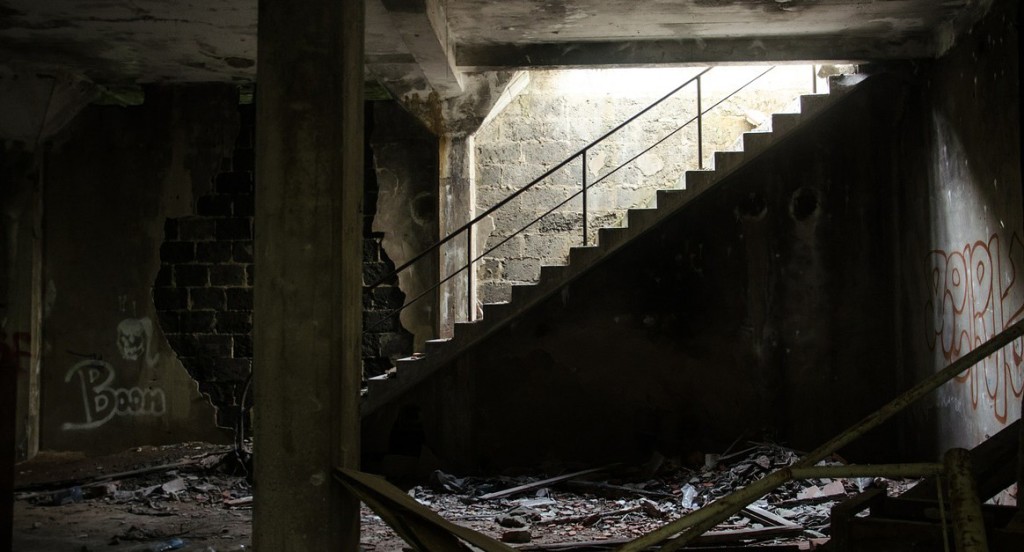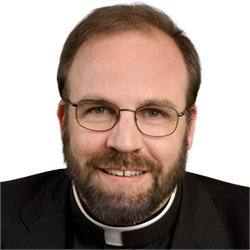Deciding to seek help is often the hardest part of actually beginning therapy. In my last post, I addressed the mistaken stigma of seeking the help of a therapist, and doubts Catholics in particular might have about seeking therapy. Overcoming our own doubts, hesitations and preconceptions is hard enough. After that, finding a therapist should be easy – just open the phone book, call someone and go. Unfortunately, it is rarely that simple. One aspect that often makes choosing a therapist more complicated is the intimacy of the work. Going in, you know you are trusting someone to understand you, even the parts of yourself that you don’t usually share with others. That can involve plenty of doubt and uncertainty. Will the therapist really understand me? Really get what is going on with me? Really be able to help me? For these reasons, those seeking help are often evaluating more than just credentials – they want to know if the therapist as a person is a good fit with them.
Because of my background, I am often asked to suggest a therapist or help in the process of finding one. As often as not, the person who asks me is not the person going to therapy, but is someone who wants information to smooth the process for a friend or relative. Regardless of who is asking, what I describe below is how I would approach the process. There is no “right way” to choose a therapist, so my intent is to provide some information to help you ponder rather than laying out a perfect series of steps. Read More →
 Suffering and Sadness as Stairs to Freedom Read More →
Suffering and Sadness as Stairs to Freedom Read More →
 By our nature as humans, we need others. Giving and receiving help is as human as breathing. God looked at Adam and said (essentially): “You’re gonna need some help.” So He provided Adam with a helpmate. Across our lifespan, we turn to others for help: to our parents for nurturing, our teachers for education, our doctors for all our physical ills. We turn to spouses and best friends to soothe us during the bruises of life, and we turn to our church community to revive our weary, broken, wayward souls. We do not think twice about seeking help from these people, but there is one person from whom many people still hesitate to seek help: a therapist (a.k.a psychologist, psychotherapist, or counselor).
By our nature as humans, we need others. Giving and receiving help is as human as breathing. God looked at Adam and said (essentially): “You’re gonna need some help.” So He provided Adam with a helpmate. Across our lifespan, we turn to others for help: to our parents for nurturing, our teachers for education, our doctors for all our physical ills. We turn to spouses and best friends to soothe us during the bruises of life, and we turn to our church community to revive our weary, broken, wayward souls. We do not think twice about seeking help from these people, but there is one person from whom many people still hesitate to seek help: a therapist (a.k.a psychologist, psychotherapist, or counselor).  So I am sure you know that there is no conflict between science and revelation. If I asked, you would tell me that when science discovers truth, it cannot conflict with religious revelation because the truths of science and the Church have their source in the same Author. But nevertheless, sometimes it is alleged that “science” disproves/replaces/invalidates religion.
So I am sure you know that there is no conflict between science and revelation. If I asked, you would tell me that when science discovers truth, it cannot conflict with religious revelation because the truths of science and the Church have their source in the same Author. But nevertheless, sometimes it is alleged that “science” disproves/replaces/invalidates religion. When I was growing up older folks often spoke of a “mid-life crisis.” Hitting forty was usually the critical period they had in mind. These days I’ve noticed it hits a lot sooner. Maybe it’s because we live in a “youth culture” that forces the questions of aging and being successful a lot quicker. Maybe it’s just the stress. But these days, there’s just something about the mid-thirties that hits a lot of folks. I was no exception. My mid-thirties were difficult years for me—years filled with anxiety and self-doubt.
When I was growing up older folks often spoke of a “mid-life crisis.” Hitting forty was usually the critical period they had in mind. These days I’ve noticed it hits a lot sooner. Maybe it’s because we live in a “youth culture” that forces the questions of aging and being successful a lot quicker. Maybe it’s just the stress. But these days, there’s just something about the mid-thirties that hits a lot of folks. I was no exception. My mid-thirties were difficult years for me—years filled with anxiety and self-doubt. A friend recently asked me how someone might know when they may be ready to consider taking medication for emotional or psychological concerns. This is an important question and one that strikes at the heart of a complex and still emerging field of research. I first want to emphatically note that I am not a psychiatrist or medical doctor and what follows is
A friend recently asked me how someone might know when they may be ready to consider taking medication for emotional or psychological concerns. This is an important question and one that strikes at the heart of a complex and still emerging field of research. I first want to emphatically note that I am not a psychiatrist or medical doctor and what follows is